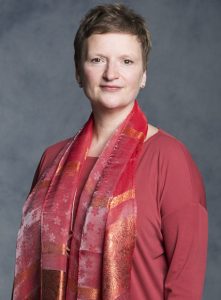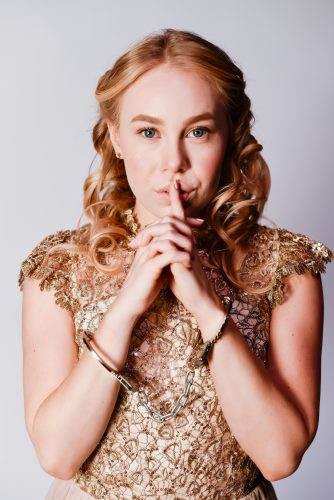Playwright’s Notes: Kate Hennig on The Virgin Trial

“What’s a virgin?” my eight year old sister asked my father one Christmas in our very brown 1970s family room deep in the suburbs of southwest Calgary. As a sixteen year old I think my eyes bugged right out of my head while waiting with bated breath to hear how he would dig himself out of that one.
“A girl who is not yet married, ” he replied, without a batting of the eye.
Darn. Good answer, I thought, somewhat disappointed at his ease. Of course my father, being a Lutheran minister, was practiced in his response to this question, bombarded as he was at this time of year by curious Christmas-pageant performers.
Elizabeth the First would also be pleased with his answer. The fact that it makes no mention of sexual intercourse would support the cult of innocence that was constructed around her: she was Gloriana: the Virgin Queen.
But though my father’s answer was enough to satisfy my younger sister, it was certainly not the whole truth. It was a convenient truth. I would venture to say that the professed virginity of the second queen regnant of England is also a convenient truth. It has extensive dramatic possibilities: and we know how this princess loved dramatic possibilities. Might we even consider her a creative artist?

What if Elizabeth created a campaign of virginity to distract the masses from her dubious integrity? What if this girl-who-is-not-yet-married was in full control of her destiny even in her teenage years? Out of necessity, she imagined her own pristine narrative in the face of a life-threatening scandal; a wily teenager, well-trained in the arts of deception, she then put a spin on the facts to whitewash her part in a variety of extremely suspicious circumstances; this young Elizabeth was capable at a very young age of making choices that would determine her highly potent future.
But she was only a girl. Can a girl really be capable of such foresight?
Ha! We don’t give girls enough credit.
In 1549, Elizabeth was doing exactly what girls and young women are doing today: adapting: re-inventing her own image, pursuing her self as art, utilising her unique principles and prescient solutions to achieve her goals.
Call it girl power. Call it virgin power. Both then, and now, it’s the beating heart of my play.
The Virgin Trial by Kate Hennig plays Sept. 11 – Oct. 6. Buy tickets before the reign is over.